The CMBA Blogathon: Detour (or, The Long and Winding Road)
 “You never know what’s in store for you when you hear the squeal of brakes.”
“You never know what’s in store for you when you hear the squeal of brakes.”
That’s Detour (1945).
A 67-minute advertisement for why hitchhiking is a bad idea, Detour is one of my favorite guilty pleasures from the classic film noir era. In a nutshell, the film centers on Al Roberts (Tom Neal), who gets more than he bargained for – and then some – when he sets out to hitchhike from New York to California. But I’m getting a little ahead of myself. Let me begin at the beginning.
(But first, you ought to be aware that we’re going to head for Spoilerville, by way of Spoiler Junction, if you know what I mean. So if you don’t want to know what happens – and if you haven’t seen this movie yet, I don’t want you to, either – look away!)
We meet Al at a diner somewhere in these United States; he‘s hitchhiking his way to the East Coast. We don’t know much about him yet, but we can see that he needs a shave and he’s anxious and jittery, with a hair-trigger temper. Fortunately for us, when Al hears a certain song on the jukebox, he’s inspired to tell us his story. He’s not exactly enthusiastic about the idea, mind you. In fact, he’d rather not remember the past at all, thank you very much. “Did you ever want to forget anything?” he asks us. “Did you ever want to cut away a piece of your memory or blot it out? You can’t, you know.”
Via flashback, we learn that Al used to play the piano at the Break o’ Dawn Club in New York. Also employed at this dive was singer Sue Harvey (Claudia Drake), Al’s pretty, perky, and blonde gal pal. Both Al and Sue have the stuff to make it in the big time, but it’s Sue who does something about it by moving to Los Angeles to seek her fortune. Unable to bear the continued separation from his lady love, Al decides to follow Sue to L.A. But there’s one problem: he’s not exactly flush. Even after hocking most of his possessions, he’s only able to raise enough money to eat. (“Money. You know what that is,” Al offers helpfully. “It’s the stuff you never have enough of.“) Hence his plan to hitch his way across the country.
After doing a lot of walking in between pick-ups, Al gets a ride with one Charles Haskell, Jr. (Edmund MacDonald), who informs him that he’s driving all the way to Los Angeles. Jackpot, right?
Not so fast.
During a regular ol’ gabfest on the road, Al learns a thing or two about Mr. Haskell, including the fact that he’s sporting several deep scratches on his hand, courtesy of a “witch” he’d picked up on the road several states back. Haskell doesn’t exactly spell it out, but we gather he tried to put the moves on his new passenger, and she wasn’t having any. “Give a lift to a tomato, you expect her to be nice, don’t ya?” Haskell explains. “After all, what kind of dames thumb rides? Sunday School teachers?” (I love how she becomes a “witch” after she turns him down and, apparently, has to fight him off. But I digress.)
Anyway, after a nice meal, financed through the generosity of Mr. Haskell, the trip takes an unexpected and tragic turn – a “detour,” if you will – that ends with Mr. Haskell’s accidental death and Al’s rather imprudent decision to hide his body and take his car. Of course, he could have reported the perfectly innocent incident to the authorities, but that would have made the movie about 24 minutes long, and kinda pointless. In any event, it’s not like Al didn’t weigh his options, and as he tells us, he completely understands how his actions could be perceived as less than wise: “I know what you’re going to hand me even before you open your mouths. You’re going to tell me you don’t believe my story about Haskell dying, and give me that ‘Don’t make me laugh’ expression on your smug faces. I saw at once he was dead, and I was in for it. Who would believe he fell out of the car? Why, if Haskell came to –which, of course he couldn’t – even he would swear I conked him over the head for his dough. Yes, I was in for it.”
After taking Haskell’s cash (“It was stupid of me to leave all that money on a dead man,” he rationalizes), his identification, and his clothes, Al hits the road again. But if you thought this was the worst dilemma Al would encounter on his cross-country sojourn, you’d best think again. This is film noir, after all. And waiting for Al in a sweater and pencil skirt, just around the bend (metaphorically speaking), was peril with a capital P – also known as Vera (Ann Savage).
Recalling his all-too-recent hitchhiking status, Al sympathetically offers Vera a ride, and although he finds her manner to be a bit brusque (“Back there,” she answers when Al asks where she came from), he develops a tender, even protective, sort of feeling toward her. “Poor kid,” he thinks after she dozes off. But his sympathy dissipates like dust in the wind when Vera’s eyes pop open and without any fanfare, she asks: “Where did you leave his body? Where did you leave the owner of this car? You’re not fooling anyone.”
Whoa!
Is Vera some kind of mentalist? No – she just happens to be the “witch-hiker” who’d been previously picked up by Charles Haskell – and who left her mark on his hand when he tried to collect his fare. “It was just my luck picking her up on the road,” Al grouses. “It couldn’t have Helen. Or Mary or Evelyn or Ruth. It had to be the very last person I should ever have met. That’s life. Whichever way you turn, fate sticks out a foot to trip you.”
And fate is planning to do more than just trip Al, which he quickly finds out, for Vera is unlike anyone he (or we!) has ever met. She shoots her words like bullets out of a gun, and she doesn’t pull any punches when it comes to assessing Al’s character or sharing her opinion. She doesn’t believe his explanation about the way Charles Haskell died, and although it’s not in her best interest to report him to the cops, she makes it perfectly clear that she’s running the show: “You’re a cheap crook and you killed him. For two cents, I’d change my mind and turn you in. I don’t like you!” Al is like pitiful putty in Vera’s hands – the more she berates him, the more his face crumples. You practically expect him to burst into tears any minute.
Vera completely takes over – as her first order of business, she demands the wad of cash Al filched from Haskell. When they arrive in L.A., she rents a cheap apartment for the two of them, signs in as “Mr. and Mrs. Charles Haskell,” claims the only bedroom as her own and informs Al that she’s “first in the bathtub.” (“I don’t know why,” Al says with a note of resignation, “but I figured you would be.”) Vera also directs Al to sell Haskell’s car the following day – with the entire proceeds going to her, of course.
The next day, Al and Vera make plans to sell Haskell’s car, although Al is not exactly looking forward to the outing: “If this were fiction, I would fall in love with Vera, marry her, and make a respectable woman of her. Or else she’d make some supreme, class-A sacrifice for me, and die. Sue and I would bawl a little over her grave, and make some crack about ‘There’s good in all of us.’ But Vera, unfortunately, was just as rotten in the morning as she’d been the night before.”
And Al doesn’t know the half of it. Just as he’s about to sign the final documents to sell the car, Vera bursts in the car dealership office to stop him. Turns out that she’s just spotted in a local paper the news that Charles Haskell’s father is dying from pneumonia and in search of his son, who hasn’t been seen by the family in more than 15 years. Haskell Senior, incidentally, is a wealthy man, and his estate would go to none other than his loving offspring – also known as Al Roberts.
Get it?
Vera devises a plan for Al to show up, claim to be Haskell, Jr., and collect the family fortune – and, of course, split the money with her. Al isn’t in favor of the idea – to say the least – but Vera shoots down his every objection. They return to the apartment to wait out the old man’s impending death, but over a bottle of something or other, they bicker incessantly over the scheme, with Al protesting and Vera persisting. Finally, Vera plays her trump card, telling Al she’ll turn him in if he doesn’t go through with the ruse. The argument escalates as the evening passes; Vera (between belts of whiskey) constantly threatens to phone the police and Al becomes increasingly physical in his efforts to stop her. Finally, Vera manages to elude Al and runs into the bedroom – taking the telephone with her and locking the door.
Determined to keep her from calling, Al grabs the phone cord from beneath the door, pulling with all his might in an effort to break it. What he doesn’t know is that, in her drunken state, Vera was collapsed on the bed – with the cord wrapped around her neck. When Al breaks down the bedroom door, he discovers that he has killed her.
Whoops.
Looks like Al’s in the soup again. But, once again, he’s able to view the matter objectively. Just like the accident with Haskell, he realizes that no one is likely to believe his explanation about his unintended role in Vera’s demise. “The world is full of skeptics,” he muses gloomily.
Back in the diner again, where we began, we learn from Al that the California police are searching for Charles Haskell, Jr., for the murder of his wife. “Isn’t that a laugh?” he asks. “Haskell got me into this mess, and Haskell was getting me out of it.” But Al isn’t out of it after all. Shortly after he leaves the diner and heads off down the road, he’s stopped and apprehended by the Highway Patrol – and as he willingly climbs into the vehicle, he leaves us with this sage observation:
“Fate, or some mysterious force, can put the finger on you or me, for no good reason at all.”
The End.
With a running time of only 67 minutes, and a budget so skimpy that director Edgar Ulmer used his own car in the film, Detour is nonetheless a first-rate entry in the film noir canon and one of my all-time favorites. For me, one of the best things about the feature is its great script and, in particular, the dialogue offered up by Vera. So it’s a pleasure to wrap things up by sharing with you some of Detour’s best lines – or what I like to call The Gospel According to Vera. Enjoy!
“That’s the greatest cock and bull story I ever heard. So he fell out of his car. Say, who do you think you’re talking to – a hick? Listen, mister. I’ve been around. And I know a wrong guy when I see one. What’d you do – kiss him with a wrench?”
“I’m not gettin’ sore. But just remember who’s boss around here. If you shut up and don’t give me any arguments, you’ll have nothing to worry about. But if you act wise – well, mister, you’ll pop into jail so fast it’ll give you the bends!”
“Not only don’t you have any scruples, you don’t have any brains.”
“You know, as crooked as you look, I’d hate to see a fella as young as you wind up sniffing that perfume that Arizona hands out free to murderers.”
“I’m not a mourner. I liked Haskell even less than I like you.”
“Why be a sore head, Roberts? You got yourself into this thing. You should be grateful I’m not turning you in. Why, if I wasn’t regular, you’d be in the pen this minute, being photographed, fingerprinted, and being pushed around by the cops! So cheer up. Get rid of that long puss. Or is your conscience bothering you?”
“He’s dead and no mooning around will bring him back. Anyway, I never could understand this worrying about something that’s over and done with.”
“If I had your troubles, I’d stay sober.”
“Life’s like a ball game. You gotta take a swing at whatever comes along before you wake up and it’s the ninth inning.”
“There’s plenty of people dying this minute who would give anything to trade places with you.”
“I’m always right.”
“People knock themselves out trying to buck fate.”
“Your philosophy stinks, pal. We all know we’re going to kick off one day. It’s only a question of when.”
“Boy, for that kind of dough I’d let you cut my leg off.”
“We’re both alike. Both born in the same gutter.”
(Don’t these quotes alone make you want to rush out and watch this film? Go for it!)
———————–
 This post is part of the Planes, Trains and Automobiles Blogathon, sponsored by the Classic Movie Blog Association (CMBA). Click the pic to the right to check out all of the great posts being offered as part of this event! You’ll be glad you did. I promise!
This post is part of the Planes, Trains and Automobiles Blogathon, sponsored by the Classic Movie Blog Association (CMBA). Click the pic to the right to check out all of the great posts being offered as part of this event! You’ll be glad you did. I promise!











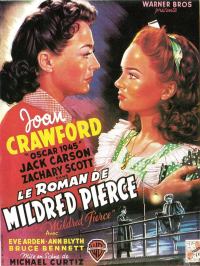




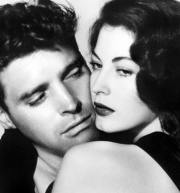














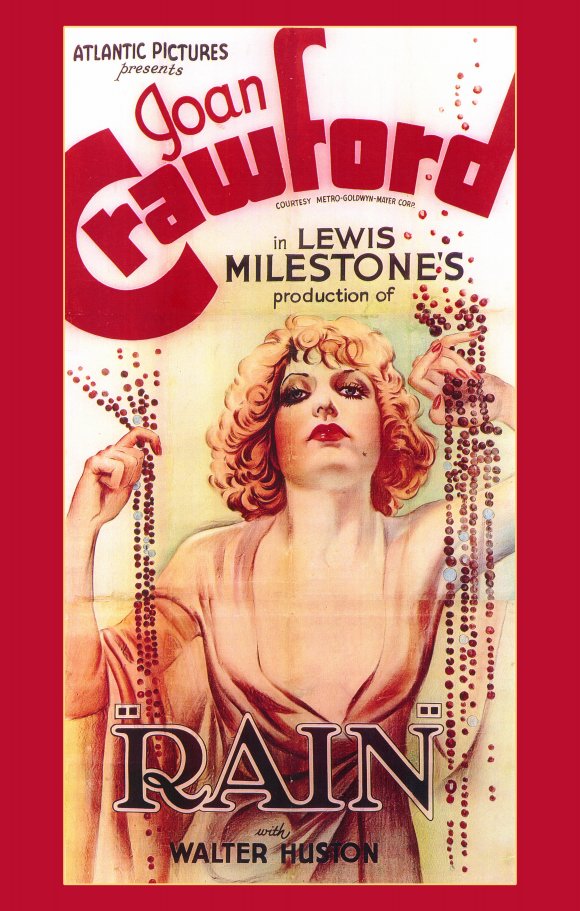

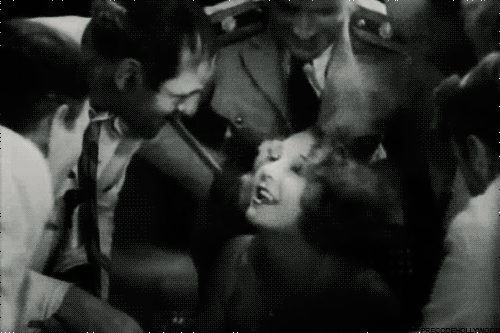
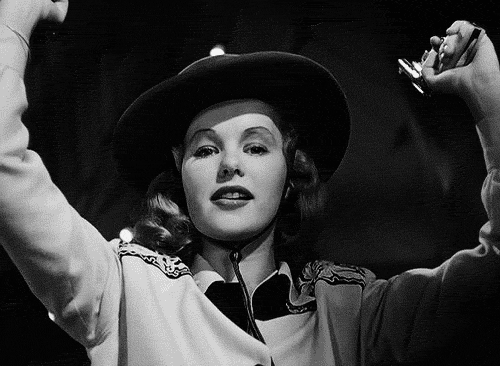

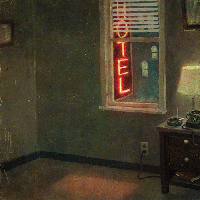
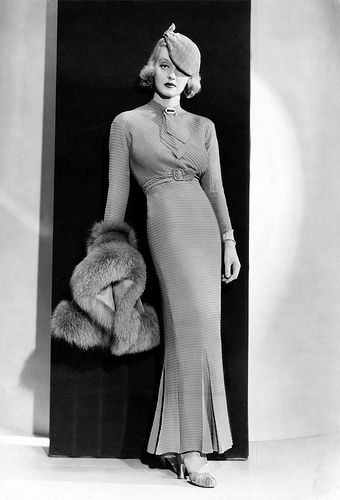



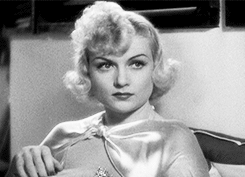





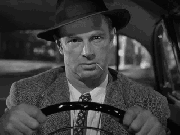

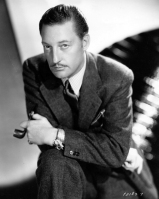
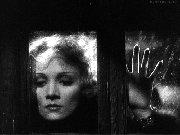


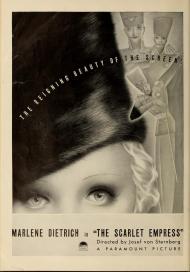
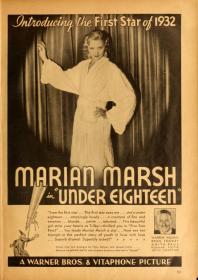
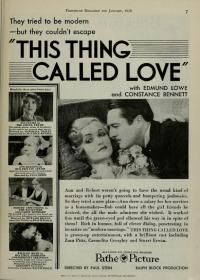


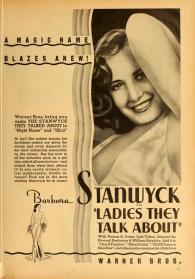


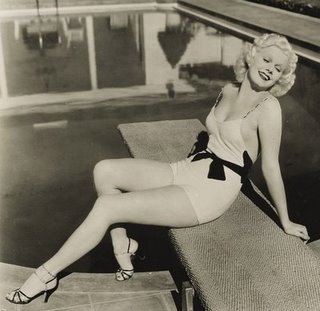




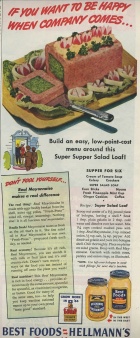
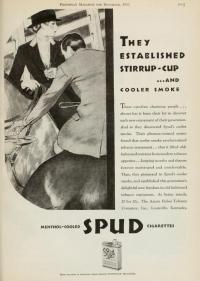

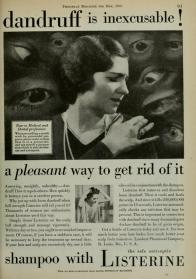
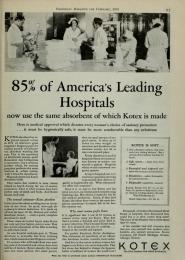
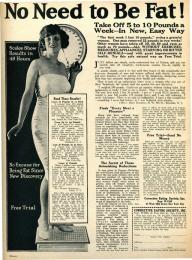


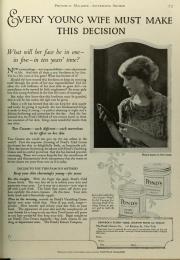
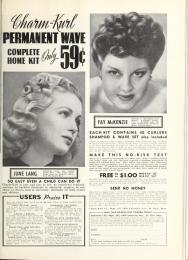
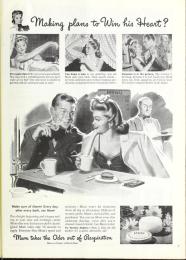


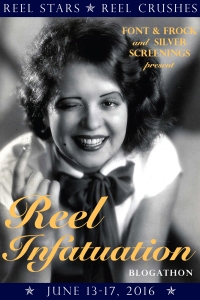

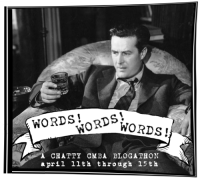

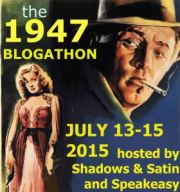
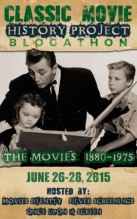



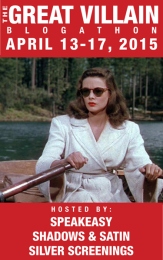

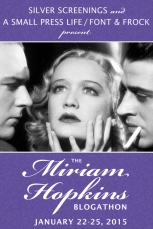
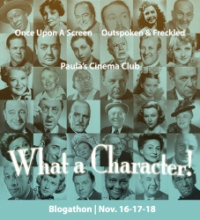




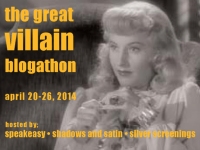
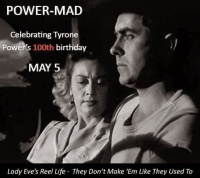


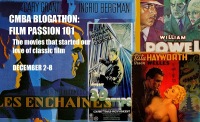
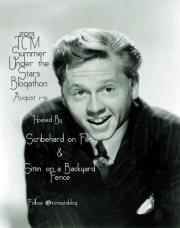





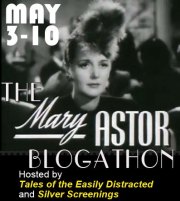


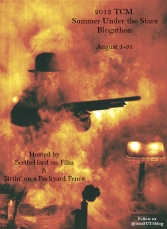


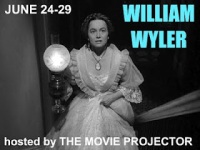

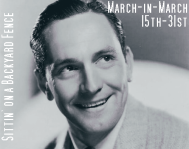
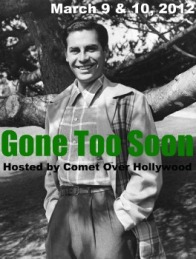


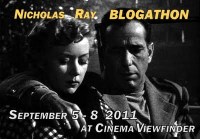

Great stuff. Never again will I watch “Detour” without the Karen commentary running through my brain!
Thanks so much, CW! 😉
Beautifully written. I loved your photo caption “Peril in a pencil skirt”. Ain’t that the truth!
This is one of my fave movies. So many plot twists! I never tire of that scene where Vera, completely out of the blue, asks where the body is. I think I almost fell over the first time I saw that.
Thank you, Ruth — coming from one of my favorite writers, that is high praise indeed. I love that scene in the car, too. One minute she’s asleep, and the next, she’s all, ARGGHHH!!!
What a beautifully written post. I’m a little weak on the lesser known noirs, so I need to put this on my radar. Very well done. I enjoyed it immensely.
Thanks so much, Marsha! I really hope you get a chance to see it soon. You will love it.
A terrific “B” noir and that phone cord scene is an all-time classic. The first time I saw it my jaw dropped!
You’re so right about the phone cord scene. Crazytown.
Man, I gotta see this one.
“A 67-minute advertisement for why hitchhiking is a bad idea.” Love that line, and so true. I haven’t seen this film in years, but it made such a big impression, esp. her character. Thank you for making me remember why!
Loved this: “A 67-minute advertisement for why hitchhiking is a bad idea”–perfect! Detour is such a great, “bad” movie! So glad it was included in the blogathon. Thanks for a wonderful review! I especially loved the dialogue you quoted at the end!
Great review. Love all the fabulous dialogue quotes.
Tom and Ann ,so, so good.
Thank you so much, Vienna! I love these quotes, too – I didn’t realize that there were so many!!
So good so good so good. I love your stuff, Karen, and will continue to credit you as I quote you.
Thanks so much, Beth! (And you know I love your stuff, too!!) 🙂
[…] Detour (1945) is 68 minutes of cracking good lines, an edge-of-your-seat plot, and a perfect noir ending. […]
[…] Detour (1945) […]